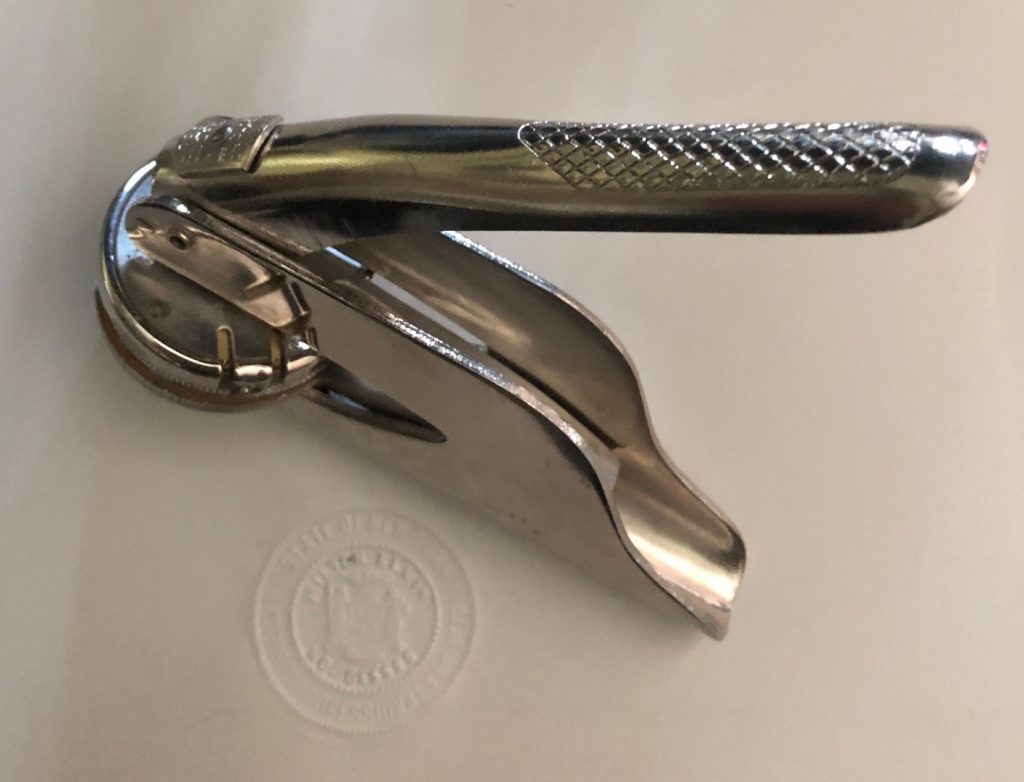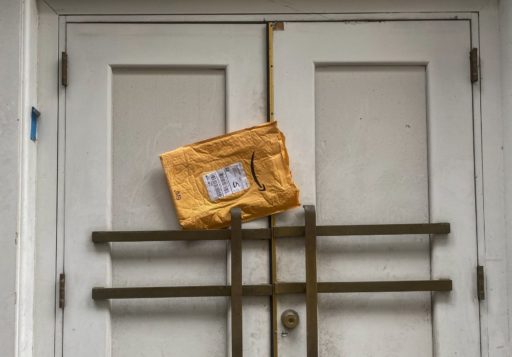Seal of Approval
What’s the opposite of a birthday? A death day? Whatever they call it, today is my father’s tenth.
His death at 89 followed a long, slow decline precipitated by a car accident. The fact that he had survived at all at age 85 getting hit by a car while crossing a street was something of a miracle – despite umpteen broken bones in his chest and all sorts of internal injuries. He was actually quite strong physically until the accident. Mentally, however, the story was quite different.

And enormously complicated. We never got the right diagnosis, perhaps because the multi-dimensionality of wayward states of mind cannot be captured in a single phrase or on a page from the Diagnostic and Statistical Manual. He had been in and out of mental hospitals for the better part of his life, from the ages of 20 until well into his late 60s. Electro-shock treatment, the occasional straight jacket, thorazine, lithium, anti-depressants, mood stabilizers. It all added up to a complex mix of mood disorders and fleeting bouts of dysfunctionality that puzzled his doctors and was painful for us to watch as we grew up. I simply knew him as someone who did not fully appreciate that he existed as a complete human being.
I spent a lot of my youth talking to him about it with him, in the process becoming more of the father to him than he was able to be for me. When I would ask him for advice he’d say, “what do you want me to tell you?” So I stopped asking, or only did so ritualistically, as if playing out a role for the sake of family semblance.
Many decades later he came to, or at least stabilized and started to become something of a real person. He occasionally acknowledged my existence and my achievements and made gestures that suggested he recognized I had formed a family and made a career. It was enough to quell the pain of absence I felt, though it never went away and never will.
Three years after he died my mother threatened to throw out what remained of his stuff. She’s a relentless discarder of the past. But I felt an obligation to at least save some evidence of my own childhood and family. This time it was the last of my father’s professional traces. He was an engineer, trained to work in electrical design, with a degree from Manhattan’s prestigious Cooper Union (class of ’41), though in fact it was mechanical engineering he really loved. It’s too bad he acceded to his father’s overbearing demands (long story there) and got what my grandfather insisted was the practical, usable degree.
Electrical was his vocation but mechanical was my dad’s true love. And so my dad worked in the 1950s and 1960s for various stereo companies – Bogen, Fisher, among them – designing components. At home, he could take apart and rebuild radios and televisions. But at heart he was really into mechanics: steam tables, pressure valves, metallic stress, and angles of repose. The novel of that title by Wallace Stegner would remain unknown to him. His favorite reading matter was trade publications, though he did manage to get through one of Henry Petroski’s volumes on the nature of engineering that I bought for him. It was the one about structural failure – “To Engineer is Human.” He loved reading about engineering gone wrong. Years later he gobbled up the book I got him about the 1940 collapse of the Tacoma Narrows Bridge – “Galloping Gertie” they called it.
In the last third of his life he managed to make up for his misplaced formal training and got a certificate degree from the University of the State of New York Education Department that validated him as a Professional Engineer. The tag “PE” was a great source of pride for him. He had it on his business card, the one he got printed as part of his second career when he sought to become a consultant. It never panned out financially, but all that really mattered was that he had accomplished something he was proud of. And then my mother called to tell me she was clearing out the safe deposit box from the bank and with it, my father’s official stamp seal.
Her urge to toss out the past, always strong, got new impetus upon my father’s death. This gave her the license to get rid of my father’s clothing, papers and books – including ones I had written and had given them (which for some reason she classified as his). And now she was clearing out and getting rid of a safety deposit box at the bank – though I’m still not sure why, since it came at no cost (a bonus for the savings account) and was hardly cluttered with any valuables. She told me what the box contained. “Old stuff,” she said.
“Like what?,” I asked. She showed me the seal she had pulled from the bank deposit vault that she wanted now to toss away – or maybe return to the State of New York because, she said, it was required by law. But I took the metal hand tool and I found a white envelope sitting around and I placed the paper within the seal press and squeezed the handles tight so that it embossed an image on the paper. I looked down and paused and realized I could read something that’s been imprinted. It says something in two circular rings, one inside the other: STATE OF NEW YORK LICENSED PROFESSIONAL ENGINEER – MILTON KLEIN NO. 055586
My eyes misted up. I was suddenly breathless. Everything stopped for a few moments as I took in what I saw. I deliberately turned away from my mother but she sensed that something was going on. “Are you crying?” she asked me. “You never show emotion.”
Goodness, she does not know me. I am usually a total wimp, reverting to tears at the flimsiest provocation – certainly every wedding and funeral I’ve ever attended, but also at more sports events. movies or even passing street scenes of cuteness or kindness than I would ever care to admit. And yet I realize that she might have good reason to think I’m not emotive because I have rarely if ever expressed feelings in front of her. In any case, this time I really can’t hide things and quietly let her know that I am really moved to have this little treasure in my possessions. “I’m so glad I have this and that you didn’t throw it out.” I tell her.
My father, the engineer, could never quite recognize me. For a long time I had sought my father’s seal of approval as validation that I was a real person. And now it was right there in my hands, to take home, to put on my desk and recall on days like this.

I recall when you wrote the magazine piece about your father. It was beautiful writing. This was it’s equal.
Beautiful, Brad. Your description of your father is so insightful. And that elusive seal of approval… glad you finally have it 🙂
Alice
I had a version of this essay written years ago and just sat on it waiting for the right moment.
Quite beautiful!
Perhaps your best, yet. Beautifully written,
Beautiful! Thank you for sharing. I am right there with you that the little things, easily overlooked as insignificant, are the keys that open the usually locked floodgates of pent up emotions and memories. My dad is gone 31 years this month, and sitting front and center on my dresser is his shaving mug and badger-hair brush, which every day reminds me that 60+ years ago this little boy watched in wonder as his hero went through his daily routine. It’s a funny thing as the years go by…we see our parents’ flaws, understand their challenges, and forgive and admire them simultaneously as they struggled to achieve the most they could with the hands they were dealt. In your beautifully introspective musings of late, heart-warming and bittersweet, it is good to remember that we, with all that is imperfect about us, are someone else’s hero too.
Thanks as always, Marvin, for your thoughtful response. I fell behind on these comments, distracted by immersion in other matters, so apologies fo the delay.
Oh, Brad, I love this essay. My eyes misted up reading it!